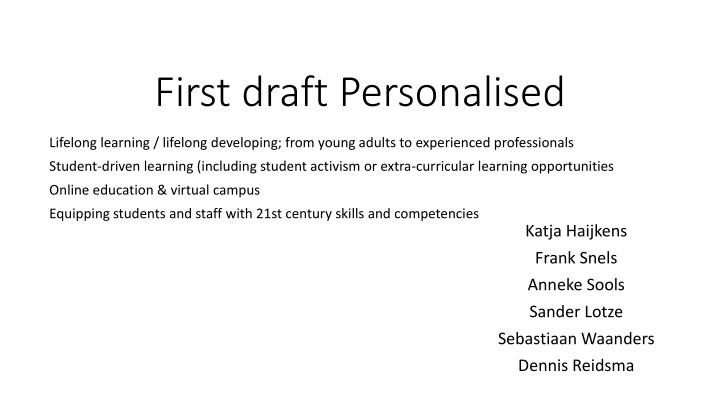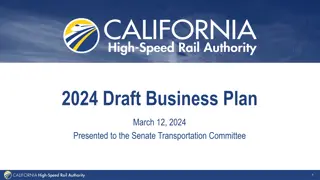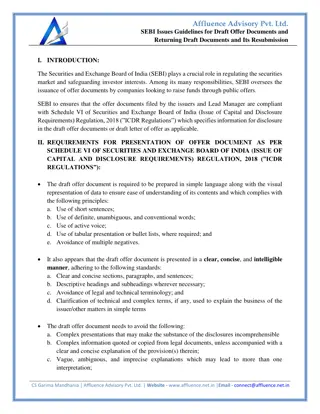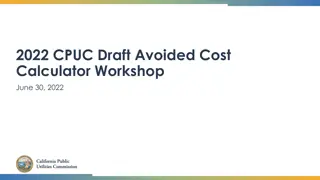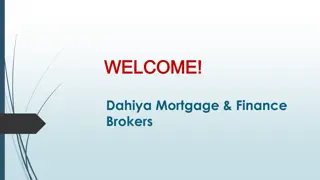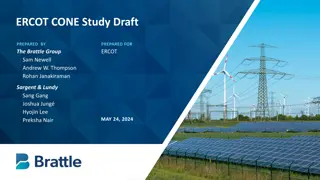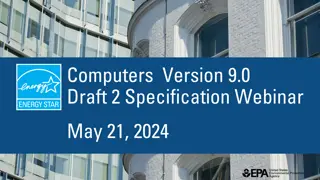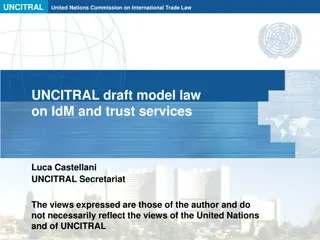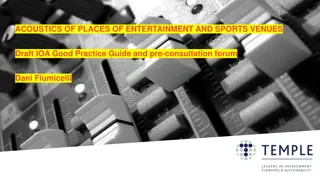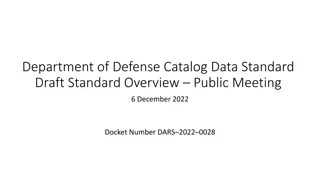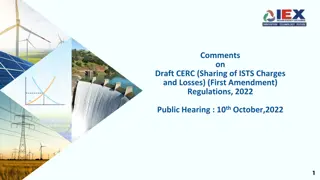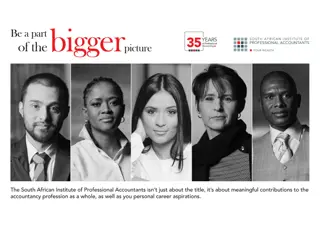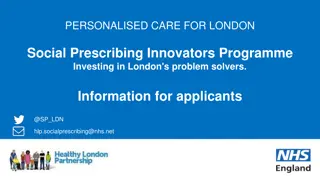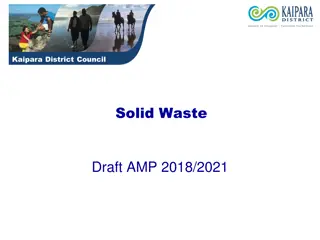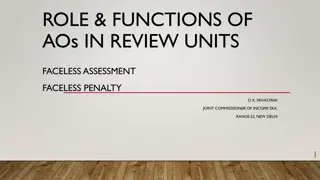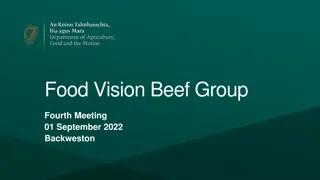First draft Personalised
This initiative focuses on fostering a culture of personalized lifelong learning to empower individuals at all stages, from young adults to seasoned professionals. Students are encouraged to drive their own learning, engage in activism, and seek extra-curricular opportunities. The aim is to equip both students and staff with 21st-century skills and competencies, emphasizing personal development in alignment with professional growth. By embracing self-governance, intrinsic motivation, and reflective practices, learners are guided to steer their learning journeys towards becoming value-driven professionals.
Uploaded on Feb 21, 2025 | 1 Views
Download Presentation

Please find below an Image/Link to download the presentation.
The content on the website is provided AS IS for your information and personal use only. It may not be sold, licensed, or shared on other websites without obtaining consent from the author.If you encounter any issues during the download, it is possible that the publisher has removed the file from their server.
You are allowed to download the files provided on this website for personal or commercial use, subject to the condition that they are used lawfully. All files are the property of their respective owners.
The content on the website is provided AS IS for your information and personal use only. It may not be sold, licensed, or shared on other websites without obtaining consent from the author.
E N D
Presentation Transcript
First draft Personalised Lifelong learning / lifelong developing; from young adults to experienced professionals Student-driven learning (including student activism or extra-curricular learning opportunities Online education & virtual campus Equipping students and staff with 21st century skills and competencies Katja Haijkens Frank Snels Anneke Sools Sander Lotze Sebastiaan Waanders Dennis Reidsma
Personalisation, basic assumption: Being able to steer your own development and learning, is a meta- competence that includes self confidence, reflection skills, self- knowledge and insight in personal values, ability to steer own behavior, . this meta-competence does not develop automatically but needs crafting, time and an (physical, social and virtual) environment that is both supporting and challenging. Personalisation will therefore differ for different groups of learners
Personalised essentials Needs of individual learners Value driven Personal development in relation to professional development Ownership of own learning Reflection is essential Slow spaces 3
Aim Personalised enable our students and staff to become value-driven professionals with an intrinsic motivation to learn, teach, research who acquire the meta-competence to steer their own learning process during and after their time at the UT; who feel at home and flourishing in the UT community. Work with commitment to creating a better, more humane and sustainable world
Value and intrinsic motivation driven Value and intrinsic motivation driven Including: Teach UT-learners the meta-competence of value-driven learning. Create space for reflection on identity development (who am I, where do I want to go, and what is my unique contribution and talent?) Acknowledge informal and formal learning beyond checking boxes
Self governance (Ownership) Self governance (Ownership) Including: Teach learners how to steer their own learning and development process. Taking risks, failing and making mistakes is pivotal to learning and should be appreciated as positive learning experiences (also for staff) Offer meaningful learning trajectories, in which learners are challenged and supported to shape their own learning process and trajectories;
Personal well Personal well- -being being Including: Strengthen physical, virtual and social homebases where learners feel safe, happy and belonging to a community Stimulate building (temporary and flexible) online and offline communities around specific challenges Teach learners to reflect on their own social, emotional, psychological and digital well-being
Personalisation as a strategy Innovating existing educational programmes Experiments parallel to the existing educational programmes In the professional context Coping with learning outside the community Role of the campus and broader community
Highlights: in 2022 All faculties have evaluated pilots concerning intervision, coaching, tutoring to stimulate value driven learning and working (meta- competence) Recommendations of Home Base Report are implemented The university has created slow spaces in all curricula and in the physical environment Formal and informal learning is acknowledged (e.g. micro-credentials, facilitate gap year, flexible registration, ..)
Highlights: in 2022 Reward commitment to develop, including taking risks, for both students and staff (include successful failures in FJUT; more emphasis on process assessment in education) Develop LLL programmes that share the same personalised core values; clear infrastructure is needed Challenge based UT initiatives (such as Curious U) will be clustered and profiled as European institute of challenges Steps have been made to redesign all one-year master programmes to two-years.
Organisational conditions Innovations in education need a flexible and supporting organisation Innovation cannot happen at the expense of the quality of current education and the well-being of staff Funding needs to be allocated to support these innovations; especially to provide temporary staff.
